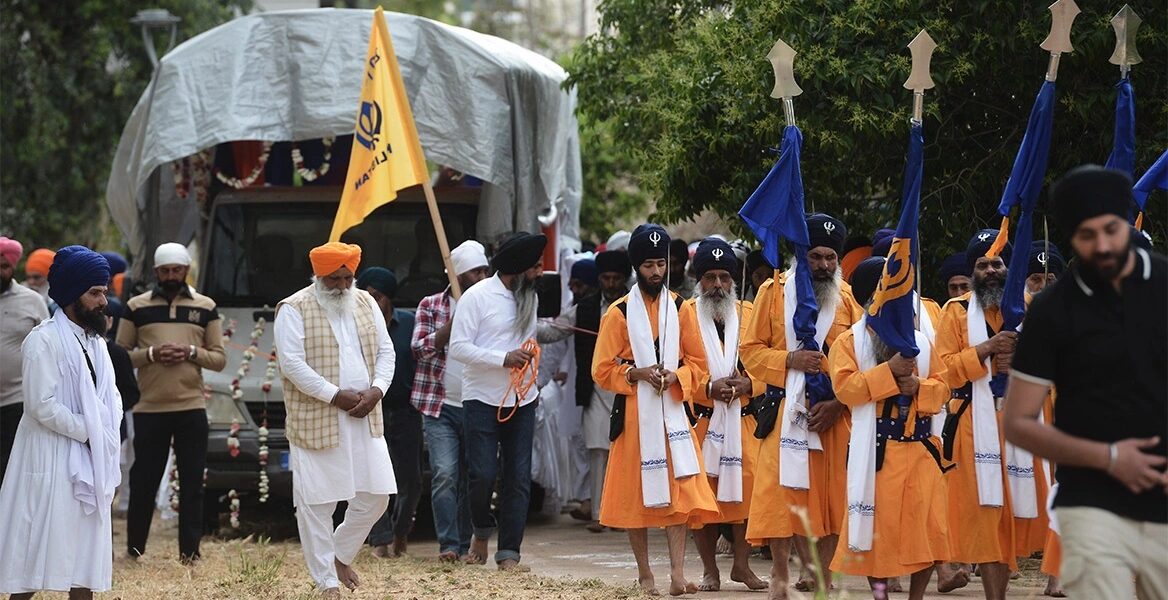The Vaisakhi ceremony was held in the Greek capital.
The arrival of the new year was celebrated on Saturday by Indian Sikhs living in Athens in a ceremony called Vaisakhi, which, although colourful and peaceful, had the inclusion of Khalistan separatists, responsible for a litany of terrorist attacks over the decades.
Sikhism is a monotheistic religion that began in northern India in the 15th century AD. It was influenced mainly by Hinduism and, to a lesser extent, Islam. Followers of Sikhism are known as Sikhs.
However, an element of Sikh extremists, known as Khalistanis, aim for a separate Sikh country in northwest India, and to achieve these goals, are in cahoots with Pakistan as part of its failed "Bleed India with a Thousand Cuts" strategy, a military doctrine of waging covert war against India using insurgents at multiple locations.
The most notable terrorist attack, among the many Khalistanis are responsible for, was in 1985, in which Air India Flight 182 flight exploded en route from Montreal to London, approximately 190 kilometres off the coast of Ireland, killing all 329 people on board and making it the worst terrorist attack in Canadian history, the deadliest aviation incident in the history of Air India, and was the world's most lethal act of aviation terrorism until the September 11 attacks in 2001.
Among the victims were 268 Canadian citizens, 27 British citizens, and 24 Indian citizens.
See video and photos of Vaisakhi in the Athens neighbourhood of Taurus:
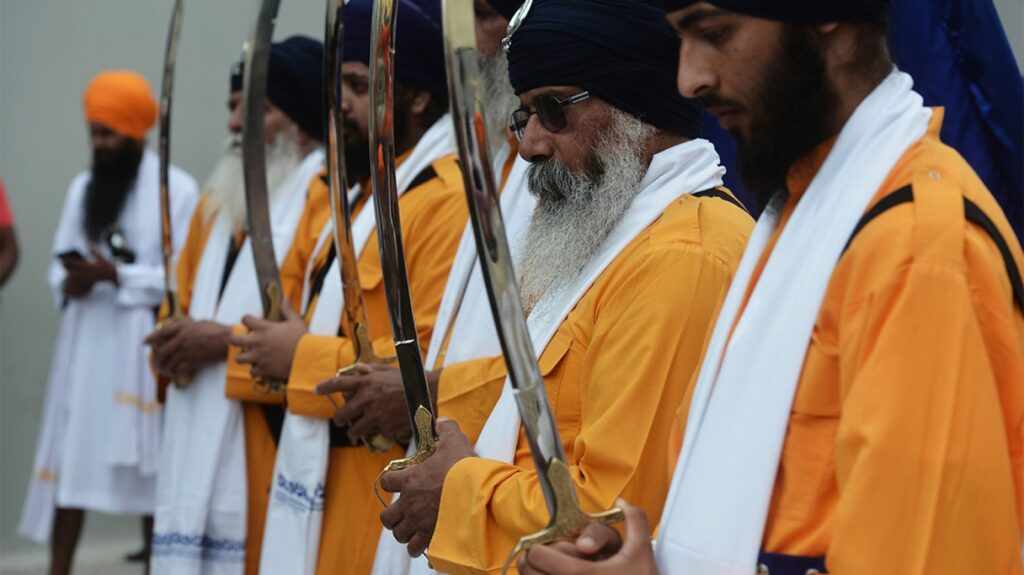
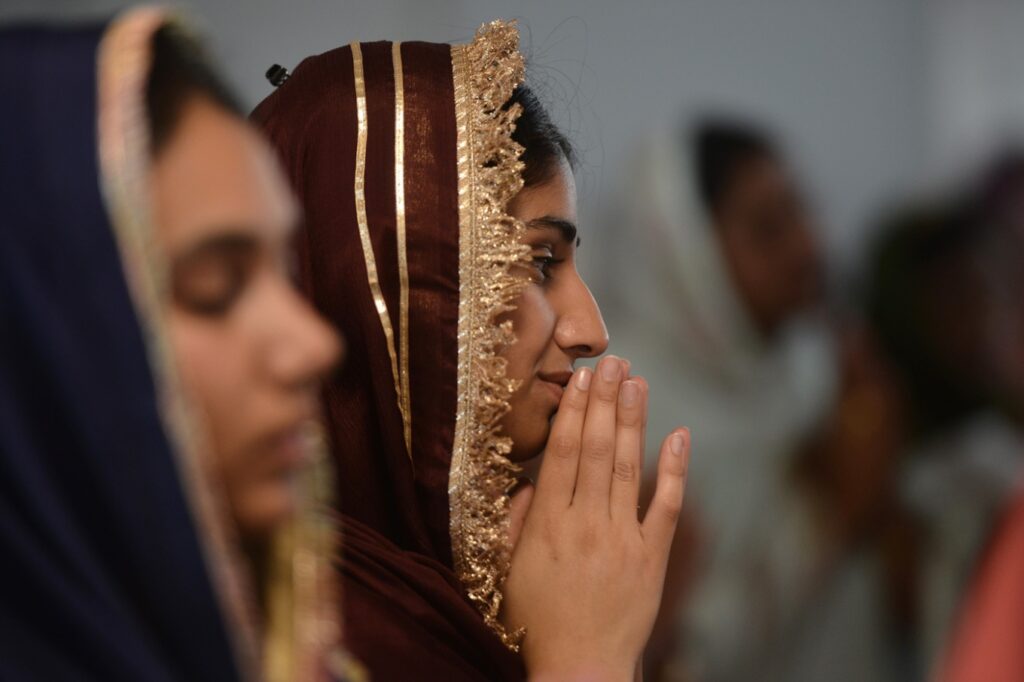

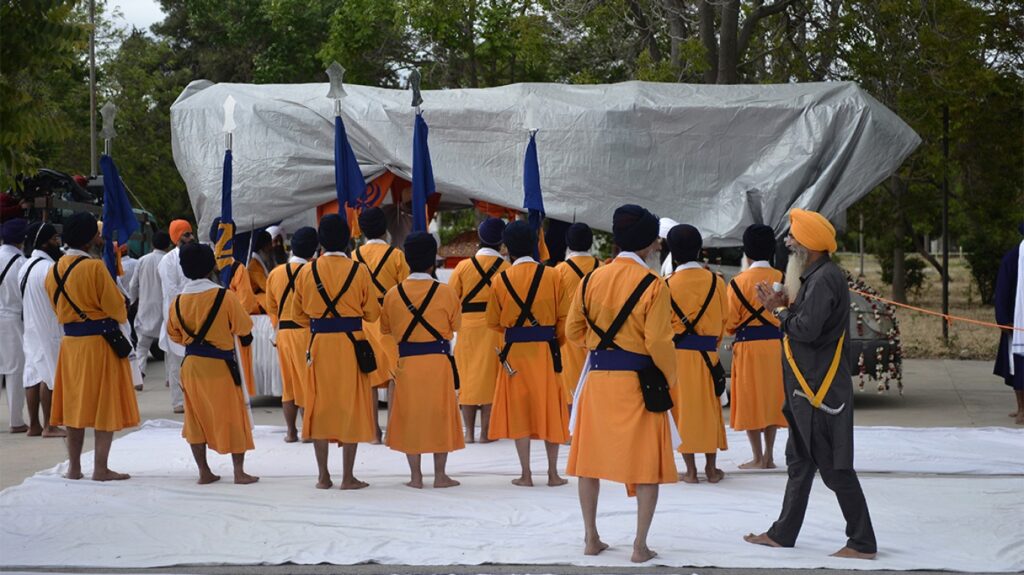
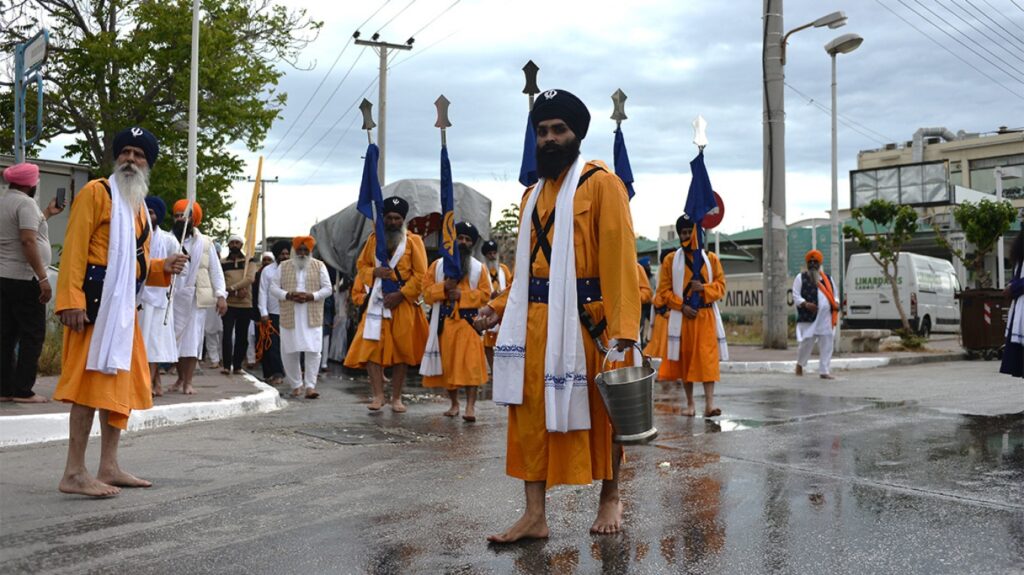
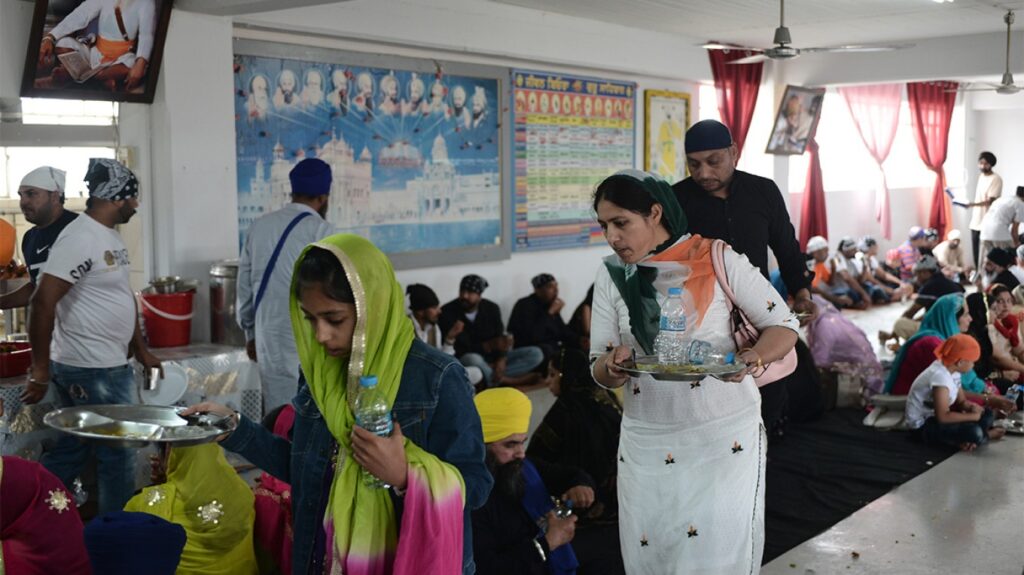

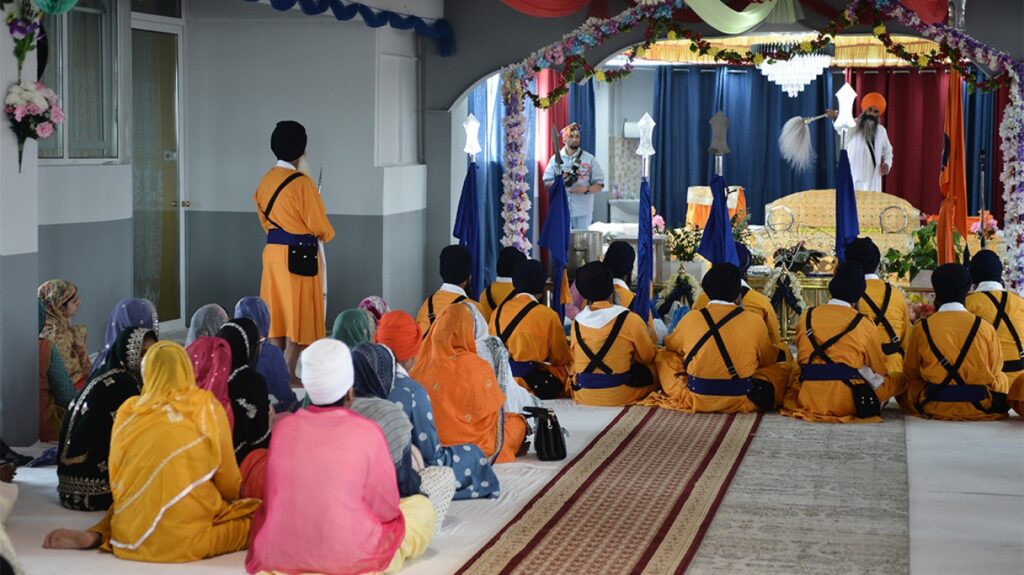
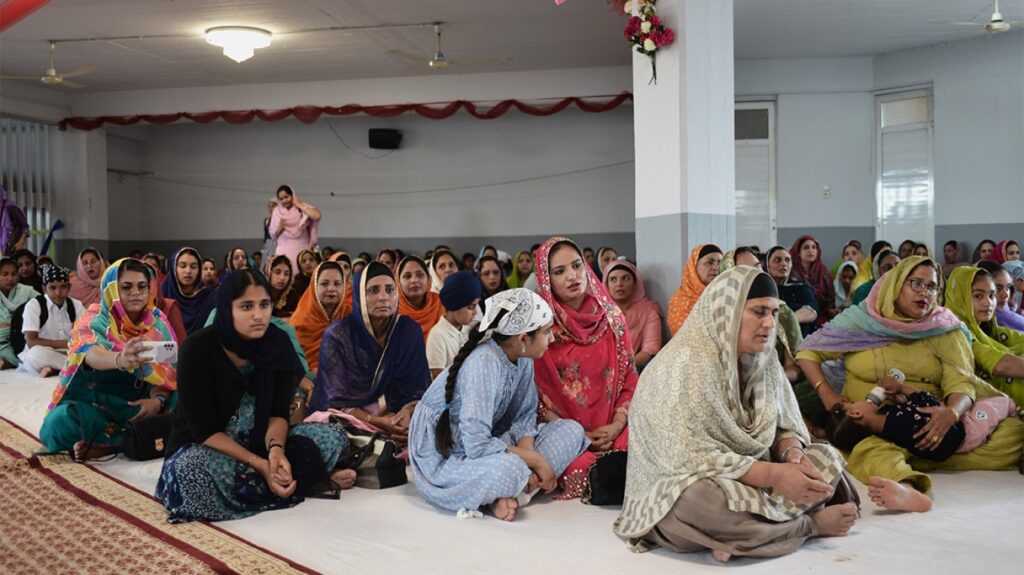
Khalistani separatists have taken hold in the United States, United Kingdom and Canada, influencing policies in these countries and even causing strains in ties with India.
New Delhi has long sought to persuade Canada not to grant Sikh separatists visas or political legitimacy, Indian Foreign Minister Jaishankar recently said, adding that the Khalistanis are "causing problems for them [Canada], for us and also for our relationship."
It now appears that the Sikh separatists are attempting to gain a foothold in Greece, with most Greeks, including authorities, naive to the Khalistan flag that appeared during the Vaisakhi festival.
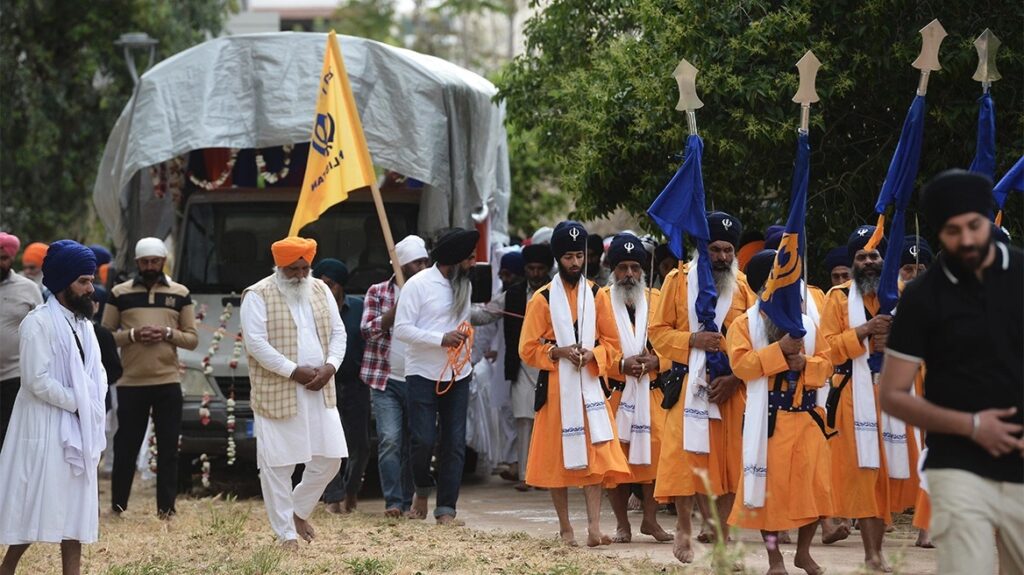
The flag of Khalistan has the Khanda, the symbol of Sikhism which consists of two scimitars, a two-edged dagger and a disc, and represents the universal creative power, superimposed on in the middle of an orange background.
READ MORE: Maldives Hosts Turkish Warship Amid Strained Ties with India.

